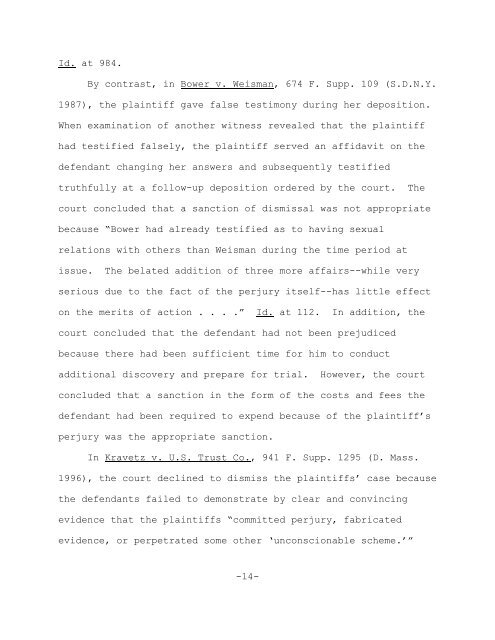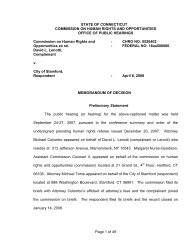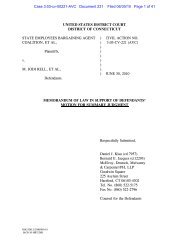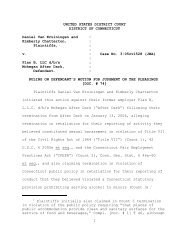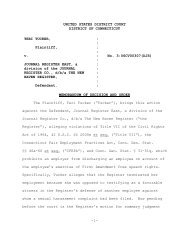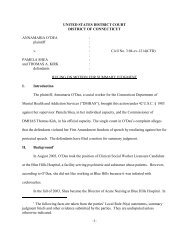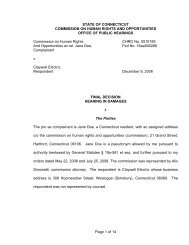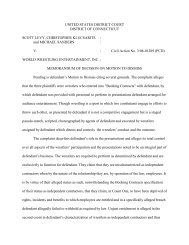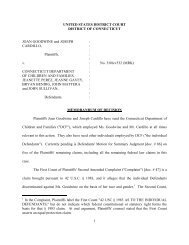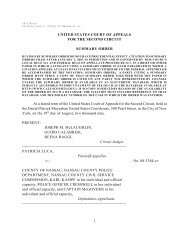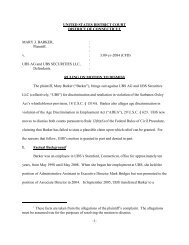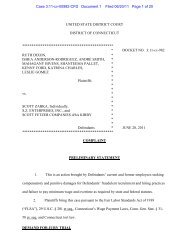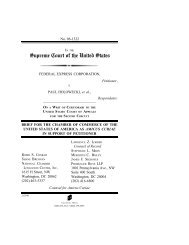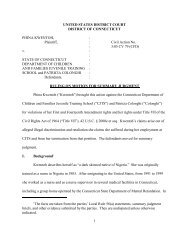Radecki v. GlaxoSmithKline - Connecticut Employment Law Blog
Radecki v. GlaxoSmithKline - Connecticut Employment Law Blog
Radecki v. GlaxoSmithKline - Connecticut Employment Law Blog
You also want an ePaper? Increase the reach of your titles
YUMPU automatically turns print PDFs into web optimized ePapers that Google loves.
Id. at 984.By contrast, in Bower v. Weisman, 674 F. Supp. 109 (S.D.N.Y.1987), the plaintiff gave false testimony during her deposition.When examination of another witness revealed that the plaintiffhad testified falsely, the plaintiff served an affidavit on thedefendant changing her answers and subsequently testifiedtruthfully at a follow-up deposition ordered by the court. Thecourt concluded that a sanction of dismissal was not appropriatebecause “Bower had already testified as to having sexualrelations with others than Weisman during the time period atissue. The belated addition of three more affairs--while veryserious due to the fact of the perjury itself--has little effecton the merits of action . . . .” Id. at 112. In addition, thecourt concluded that the defendant had not been prejudicedbecause there had been sufficient time for him to conductadditional discovery and prepare for trial. However, the courtconcluded that a sanction in the form of the costs and fees thedefendant had been required to expend because of the plaintiff’sperjury was the appropriate sanction.In Kravetz v. U.S. Trust Co., 941 F. Supp. 1295 (D. Mass.1996), the court declined to dismiss the plaintiffs’ case becausethe defendants failed to demonstrate by clear and convincingevidence that the plaintiffs “committed perjury, fabricatedevidence, or perpetrated some other ‘unconscionable scheme.’”-14-


